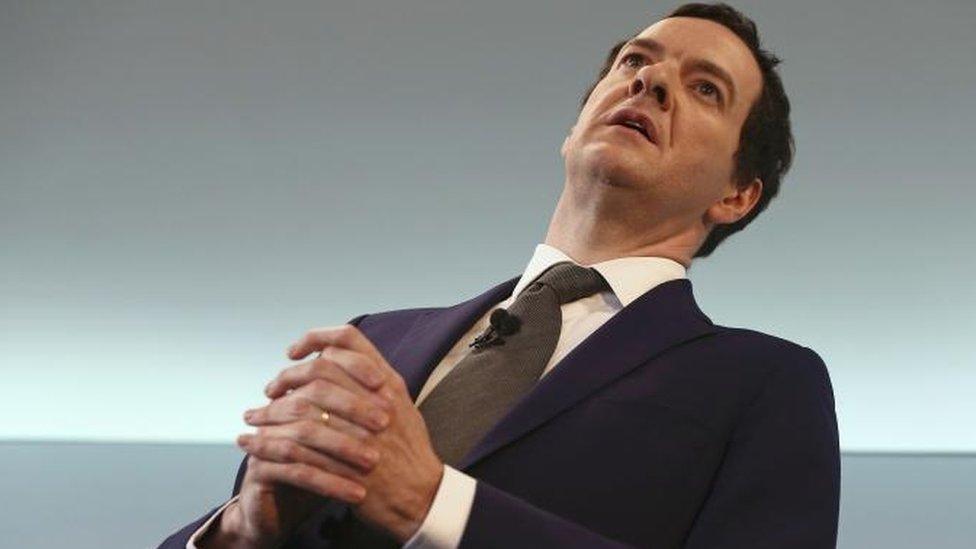Savers and borrowers braced for change amid Brexit fallout
- Published

Two speeches made within 24 hours have signalled significant changes ahead for personal finances.
On Thursday, Bank of England governor Mark Carney hinted at the likelihood of an interest rate cut, aiding borrowers and hitting savers.
Then on Friday, Chancellor George Osborne cleared the way for an easing of further austerity.
That makes it far less likely that the UK's vote to leave the EU may lead to additional tax rises or spending cuts.
Cheaper housing costs
Mr Carney told business leaders in a speech at the Bank of England, external that a deteriorating economic outlook meant "some monetary policy easing" would be required in the summer.
The Bank's main tool of monetary policy is its key interest rate which already stands at a record low of 0.5% and has done since March 2009. Another part of the toolkit is quantitative easing, or, in effect, money printing.

A rate cut to 0.25% by the Bank of England would take around £20 a month off a typical £160,000 mortgage.
"If the Bank of England base rate is reduced again, fixed and tracker rates will get even cheaper. Mortgage rates have been consistently lowered over the last few years for all types of borrowers as the lenders try to tempt more borrowers into action," said Aaron Strutt, of mortgage brokers Trinity Financial.
Others say there is a chance that fixed rates, having dropped already, might not automatically follow a Bank rate fall.
Many industry commentators are expecting a slowdown in activity in the UK housing market as potential buyers and sellers, and mortgage customers, take a wait-and-see approach.
A rate cut would bring further pain for savers who have been receiving little interest since the financial crisis.
The average cash Isa (an Individual Savings Account) pays 0.67% interest, according to Bank of England figures.
Savings income is likely to drop even further were there to be a drop in the Bank rate.
"Although for many years now there has been a marked separation between the Bank of England base rate and rates offered on savings accounts, we would expect to see many providers using a drop in the Bank of England base rate, or even the suggestion of it, as an excuse to drop savings rates further," said Anna Bowes, of rate tracking service Savings Champion.
Osborne 'to abandon 2020 budget surplus target'
How will Brexit affect your finances
Future of austerity?

Mr Osborne, in his speech, is abandoning a plan to achieve a budget surplus by 2020.
This could allow for more borrowing to mitigate any negative economic effects of uncertainty around the referendum result.
Practically for UK residents, this means less immediate need to increase taxes and make further spending cuts if national income does decline as some expect.
Recent years have seen a string of austerity measures, not least a cap on public sector pay rises, which were driven by this surplus target.
The greater government debt that was expected following Mr Osborne's decision would still have to be paid off in the long-run, warned Paul Johnson of the Institute for Fiscal Studies.
"Spending will eventually be lower, or taxes higher, than would have been the case had the referendum vote gone the other way," he said.
Brexit effect
Other aspects of our finances have been affected by Brexit in the week following the vote.
The movements in the markets - initially a big fall followed by a stronger recovery - means the average pension pot investment is stronger than a week ago.
Clearly, this is only on paper, and becomes a financial reality when that pension part is cashed in or converted into an annuity, or retirement income.
Some providers have cut the rates available on annuities following the referendum, making the offer less generous, in what is a one-off decision.